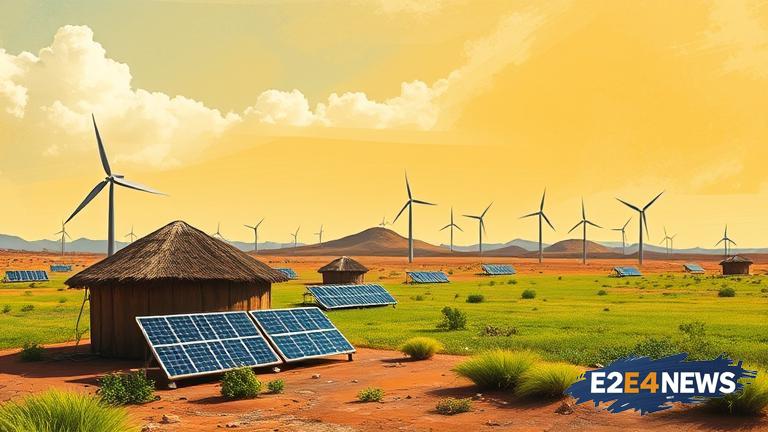The African continent is witnessing a significant shift towards renewable energy, driven by the need to address the pressing issues of energy access, energy security, and climate change. With a growing population and increasing economic activities, the demand for energy in Africa is on the rise. However, the continent’s reliance on fossil fuels has led to concerns about greenhouse gas emissions, air pollution, and the impact on public health. In response, many African countries are now exploring alternative energy sources, such as solar, wind, hydro, and geothermal power. The cost of renewable energy technologies has decreased dramatically over the years, making them more competitive with fossil fuels. Additionally, advancements in technology have improved the efficiency and reliability of renewable energy systems. As a result, renewable energy is becoming an increasingly attractive option for African countries looking to diversify their energy mix. South Africa, for example, has set ambitious targets to increase its renewable energy capacity, with a focus on solar and wind power. The country has already made significant progress in this regard, with several large-scale renewable energy projects coming online in recent years. Similarly, countries such as Morocco, Egypt, and Kenya are also investing heavily in renewable energy, with a focus on solar and wind power. The African Union has also launched several initiatives to promote the development of renewable energy on the continent, including the African Renewable Energy Initiative. This initiative aims to increase the share of renewable energy in Africa’s energy mix to at least 22% by 2030. The private sector is also playing a crucial role in the development of renewable energy in Africa, with several companies investing in large-scale renewable energy projects. Furthermore, international organizations such as the International Renewable Energy Agency (IRENA) and the World Bank are providing technical and financial support to African countries to help them develop their renewable energy sectors. The benefits of renewable energy are numerous, including reduced greenhouse gas emissions, improved air quality, and enhanced energy security. Renewable energy can also create jobs and stimulate local economies, particularly in rural areas where many renewable energy projects are located. Moreover, renewable energy can help to reduce the continent’s reliance on imported fossil fuels, improving trade balances and reducing the impact of price volatility. However, despite the many benefits of renewable energy, there are still several challenges that need to be addressed, including the high upfront costs of renewable energy technologies and the need for significant investment in energy infrastructure. Additionally, the integration of renewable energy into existing energy systems can be complex, requiring careful planning and coordination. Nevertheless, the potential for renewable energy in Africa is vast, and with the right policies and investments in place, the continent can unlock its full potential and achieve a sustainable energy future. In conclusion, the renewable energy revolution in Africa is gaining momentum, driven by the need to address the pressing issues of energy access, energy security, and climate change. With the right policies and investments in place, the continent can unlock its full potential and achieve a sustainable energy future. The future of energy in Africa is renewable, and it is an exciting time for the continent as it embarks on this journey towards a more sustainable and energy-secure future. The transition to renewable energy will require careful planning, coordination, and investment, but the benefits will be numerous, including reduced greenhouse gas emissions, improved air quality, and enhanced energy security. As the continent continues to grow and develop, it is essential that renewable energy plays a central role in its energy mix, providing a sustainable and reliable source of power for generations to come.
